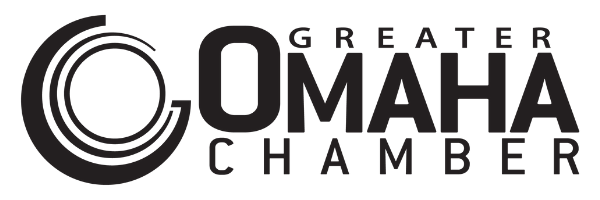By: Marco Floreani, Manager of Business Development at Greater Omaha Chamber
You can’t work in economic development if you’re averse to making bold predictions. At the very least, it’s our job to have some opinions on the latest industry trends. Over the past years, we’ve seen global trends, accompanied by hundreds of billions of investment, in emerging technologies such as predictive analytics, machine learning, Internet of Things (IoT), cloud computing, mixed reality and my personal favorite, Blockchain.
Blockchain is a next generation technology for building distributed infrastructures used to communicate, store, sell, buy, trade, execute and insure knowledge and value. We’ve become used to our data being stored and distributed from silos operating from the center. These data bases work, but what if they acted more as a connected network and permitted the world to communicate within a larger distributed value chain? Blockchain has the potential to reduce the frictions associated with making payments, offloading supply chains and execute contracts. It’s been hyped as disruptive technology, but I like to think of it as stabilizing or inclusive technology. Blockchain could reengineer the way the economy works for everyone.
Here’s an example related to provenance and the agricultural industry. A Nebraska rancher wants to sell his or her beef to a restaurant in London. The restaurant wants the highest quality and proof of such. Using Blockchain, the rancher could certify their cattle by smart-tracking the livestock from birth, ranch, CAFO, processing plant, transport center and then down to the restaurant table in Notting Hill. The cow is tracked and verified by a network of computers – the Blockchain processing every element of its life. And because this network is distributed and massive, hacking the data or digital health record of the cow is virtually impossible. The rancher sells as a premium and the chef buys. The proof of work and value are on the Blockchain. These solutions for provenance are huge for large and small ag producers, but imagine the technology being further developed to track food-borne illnesses, send food and medical supplies and issue insurance within our own local food supply.
Imagine six years from now when you own a driverless car. You may choose to manually drive it to the office, but instead of parking it in a garage all day, you may permit your autonomous vehicle to act as a taxi. As you’re working, your car is out collecting payments and distributing the revenue back towards your car loan – no middle man inserting extra charges for you or the customers, just seamless transactions verified across vast networks working together to settle the proof of work/transaction.
Did I mention economic developers are into making bold predictions? The potential of emerging technology such a Blockchain is stimulating, especially in relation to its economic impact. That is why I’m thrilled to announce that on Friday, May 5, we’re co-hosting an event with the Global Blockchain Business Council (GBBC) at KANEKO, 1111 Jones St.
We’re bringing in IBM to present their work using Blockchain to aid the tracking of global shipping containers. Ernst Young and Risk-Cooperative will be here to lead discussions on the impacts of Blockchain on the financial services industries. Union Pacific and Mutual of Omaha will be acting as local representatives, helping move along the regional use-cases. We want you to be there too. (View the latest agenda and register at wedontcoast.com/new-kids-blockchain)
Help us move past conjecture. Take advantage of a tremendous opportunity and participate with other Greater Omaha companies and firms at this event. Let’s demystify Blockchain and start thinking if our own business solutions can be found on the Blockchain.

